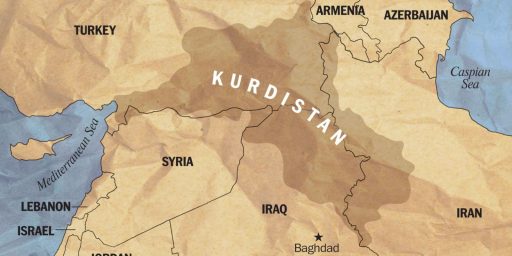U.S. Forces in Iraq After the Transition
Daniel Schorr points to an tricky problem ahead:
At a Council on Foreign Relations meeting the other evening, I asked Gen. Peter Pace, vice chairman of the Joint Chiefs of Staff, what the position of American forces in Iraq would be after the handover of sovereignty scheduled for June 30.
Carefully, he replied that the coalition forces would remain at the request of the Iraqi government, and that their exact authority is “still being worked out.”
Actually, negotiations with the interim government have reached an apparent deadlock. And The New York Times reports that the current Governing Council has decided to leave the issue to the new sovereign government, having concluded that the question is too momentous to be handled without a popular mandate from the Iraqi people.
What is involved here is a “status of forces” agreement that can determine everything from when coalition troops go into battle against insurgents to who is in charge when a soldier commits a crime.
***
It can be a delicate matter, after a war, converting occupiers to allies and making friends of enemies. And equally delicate is handing over the reins of government to untried leaders who have often been divided by ethnic hatred and suspicions.
And, without knowing what a sovereign government will look like and what the security situation will be, it is hard to imagine the Bush administration ceding, or even sharing, authority over American forces.
Indeed, it’s hard to imagine any American president doing that. Once sovereignty is turned over to an Iraqi government, they have every right to restrict the role of our forces. They could even take away basing rights and send us home. But we have to retain complete authority over the troops themselves.





While extremely tricky, this is not an unprecedented problem – last I heard, we still have no SOFA with Saudi Arabia, either. The basic upshot of that was that if you committed a crime, and the Saudis picked you up (i.e., you did something stupid off-base), you were under Saudi law & handled by the Saudi judicial system.
I don’t recall the details, but I know friends who’ve been there over the last decade that even back to Desert Storm, there were significant difficulties (and ultimately, much “we see nothing” by Saudi officials) in even allowing Jewish US troops into the country.
—